Remembering History: Never Forget September 18th
On September 18, 1931, the Mukden Incident broke out, marking the beginning of a 14-year bloody struggle for the Chinese nation and the start of the global anti-fascist war. This September 18 marks the 93rd anniversary of the incident. In the morning, a commemorative education event was held at the Memorial Hall, attended by around 500 representatives, including descendants of Nanjing Massacre survivors, youth representatives, community representatives, military academy students, and Zijin Grass Volunteers.
Ringing the Peace Bell: Remembering History, Staying Vigilant
At 9:18 am, the ceremony began with the raising of the national flag and the singing of the national anthem. The atmosphere at the Public Memorial Square was solemn, with all attendees standing respectfully toward the flag. Young pioneers saluted, military academy students rendered a military salute and the entire audience joined in singing the national anthem of the People's Republic of China.
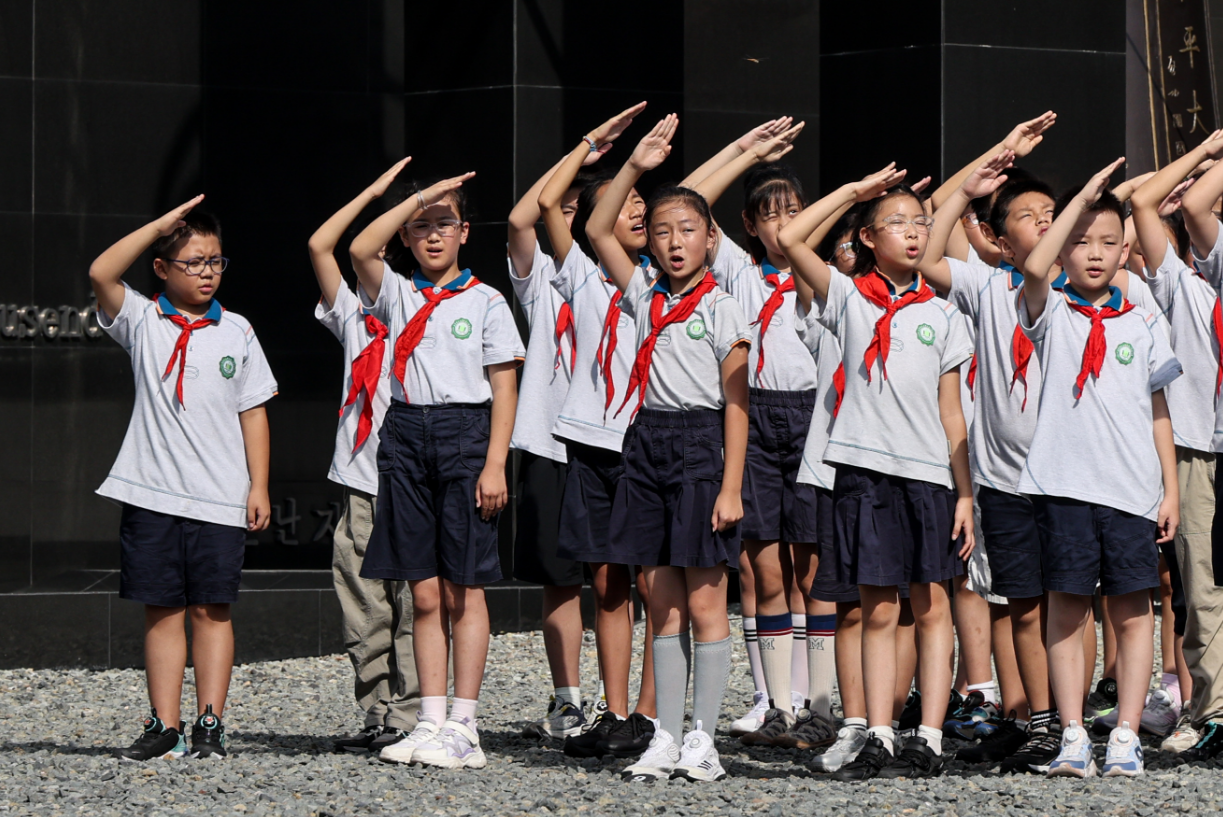
After the anthem, everyone observed a moment of silence in honor of the victims of the Nanjing Massacre, those who perished at the hands of Japanese invaders, revolutionary martyrs, national heroes, and international allies who fought alongside the Chinese people.
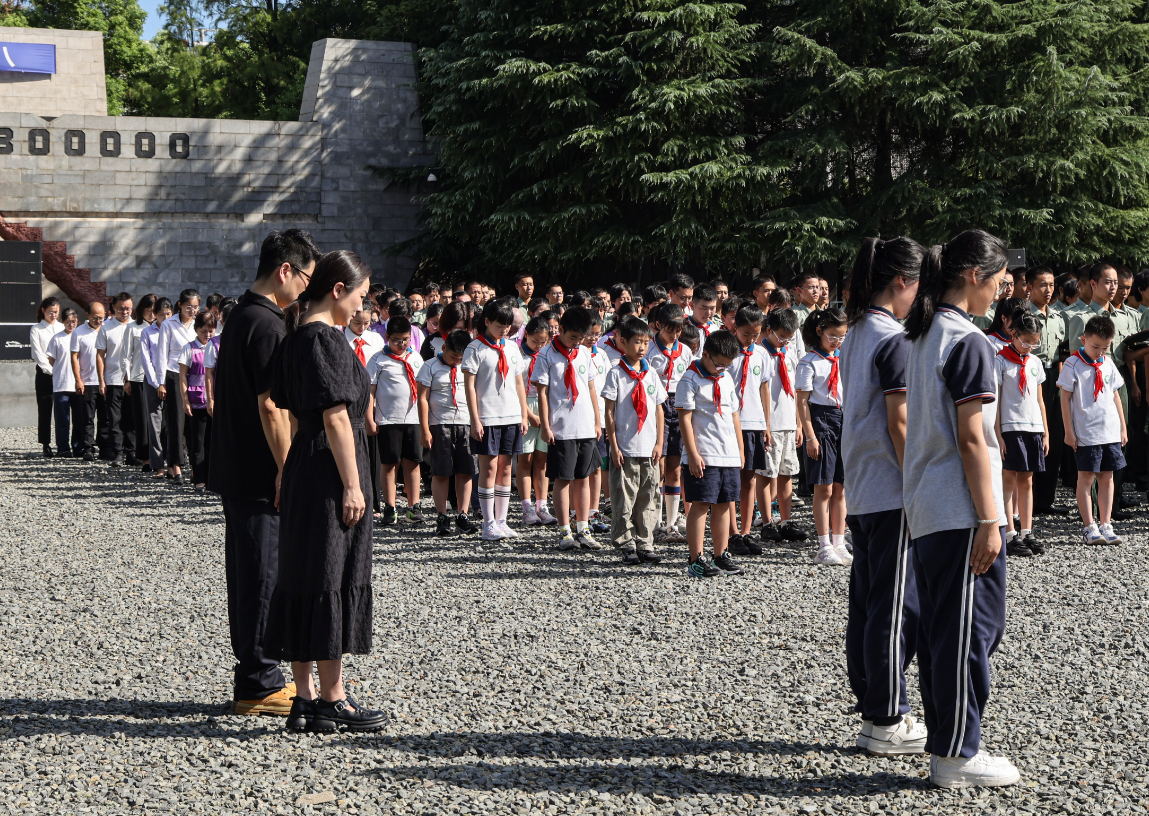
Volunteer representatives recited the anti-war poem Revived Land.
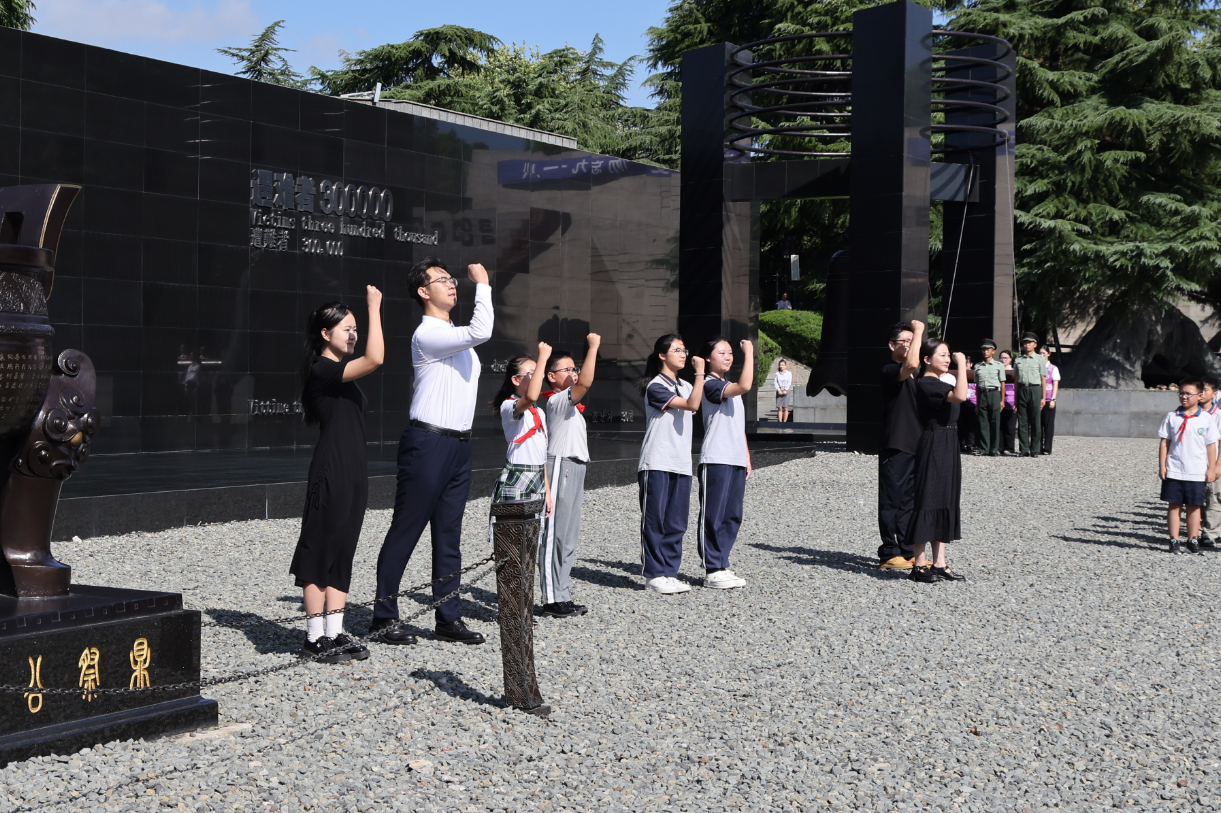
Six representatives, including Nanjing Massacre Memory Inheritors, Zijin Grass Volunteers, military students and others, rang the Peace Bell, reminding everyone to cherish peace and remember history. Mei Yuxiao, a Zijin Grass Volunteer from Nanjing University's School of Journalism and Communication, held the bell mallet tightly and said, "The ringing bell comforts the victims and serves as a reminder to learn from history and cherish peace. As a youth of the new era, I must not forget history and strive to be of service to my country."
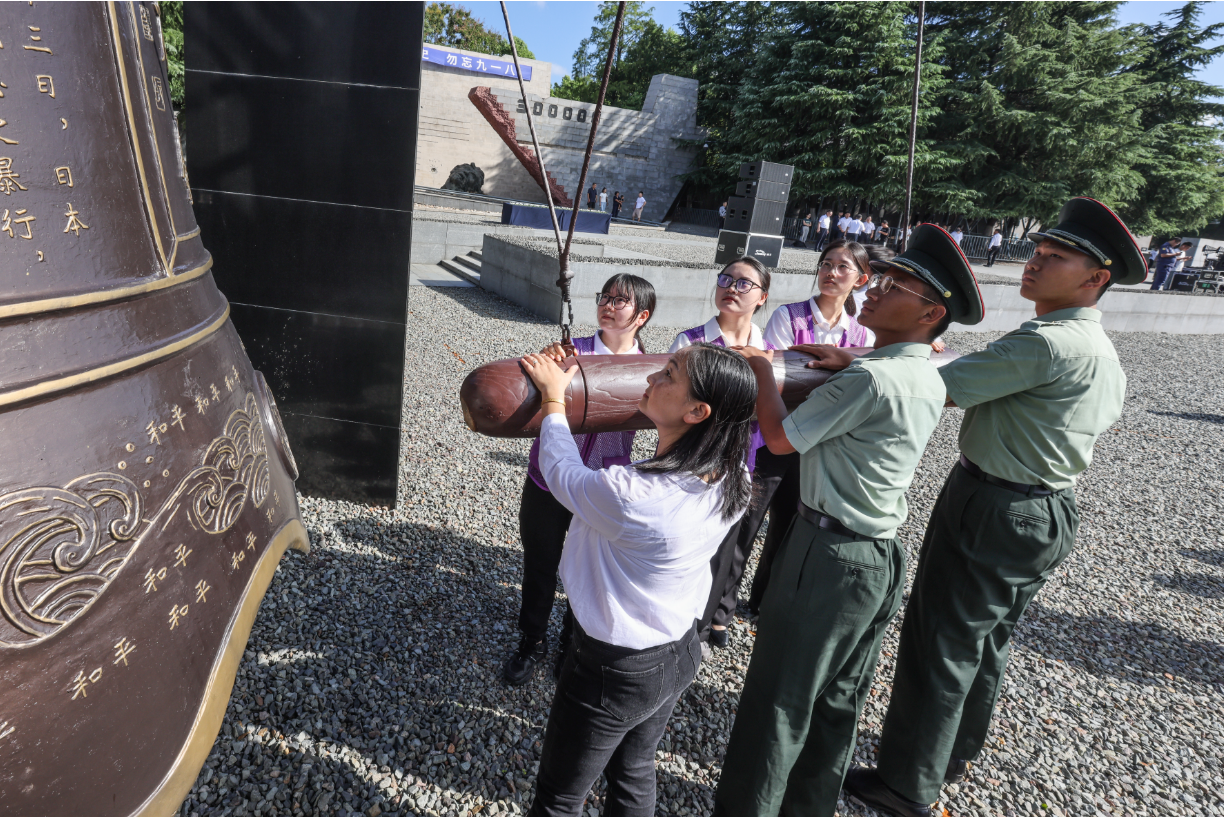
The Memorial Hall honored the innocent victims, revolutionary martyrs, and international allies who lost their lives resisting Japanese aggression by presenting wreaths. All attendees then laid flowers in tribute.
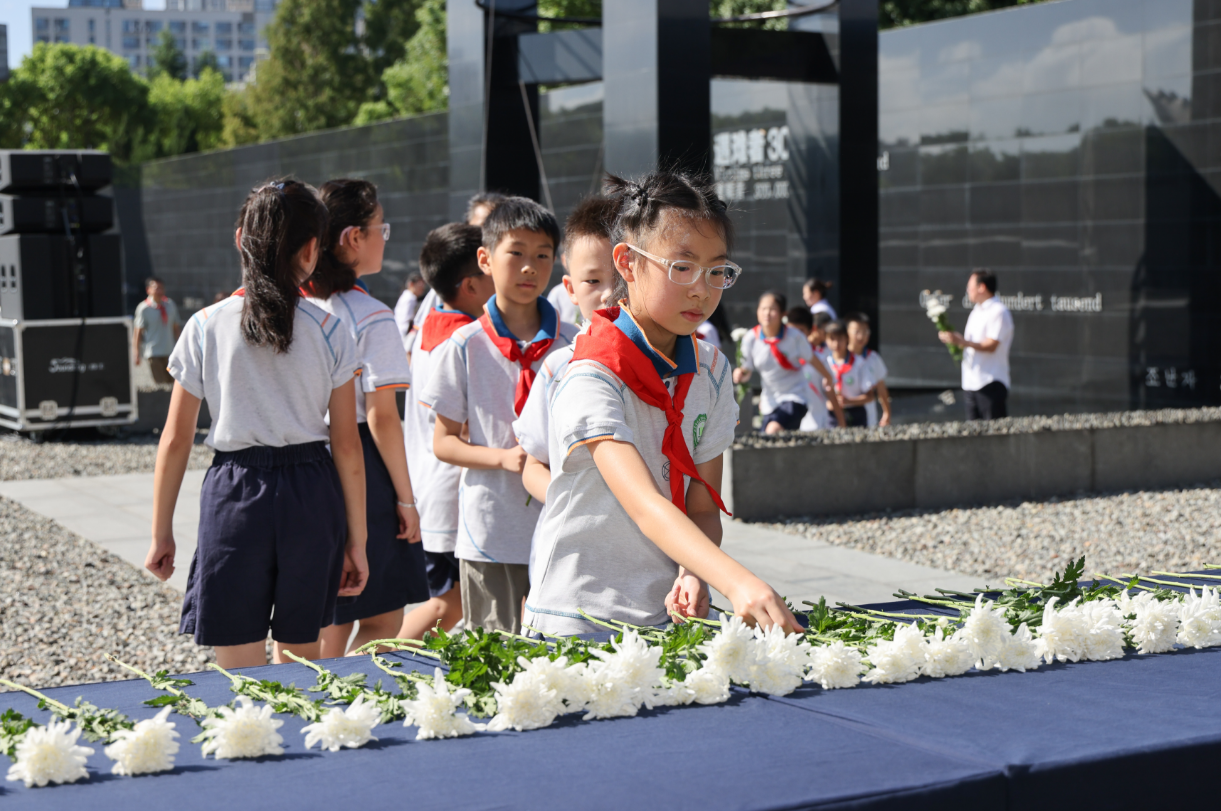
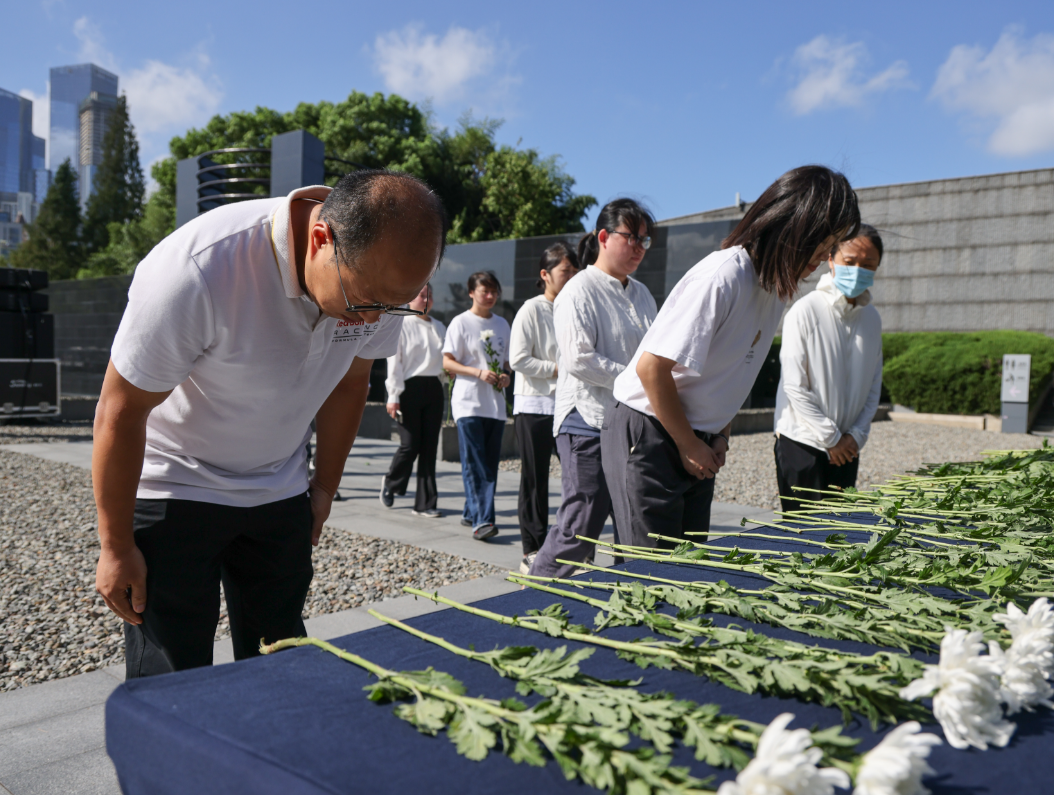
Sirens Sound: Defending History, Preserving Peace
At 10 am, air-raid sirens sounded across Nanjing. At the Public Memorial Square of the Memorial Hall, visitors paused to reflect and mourn the deceased.
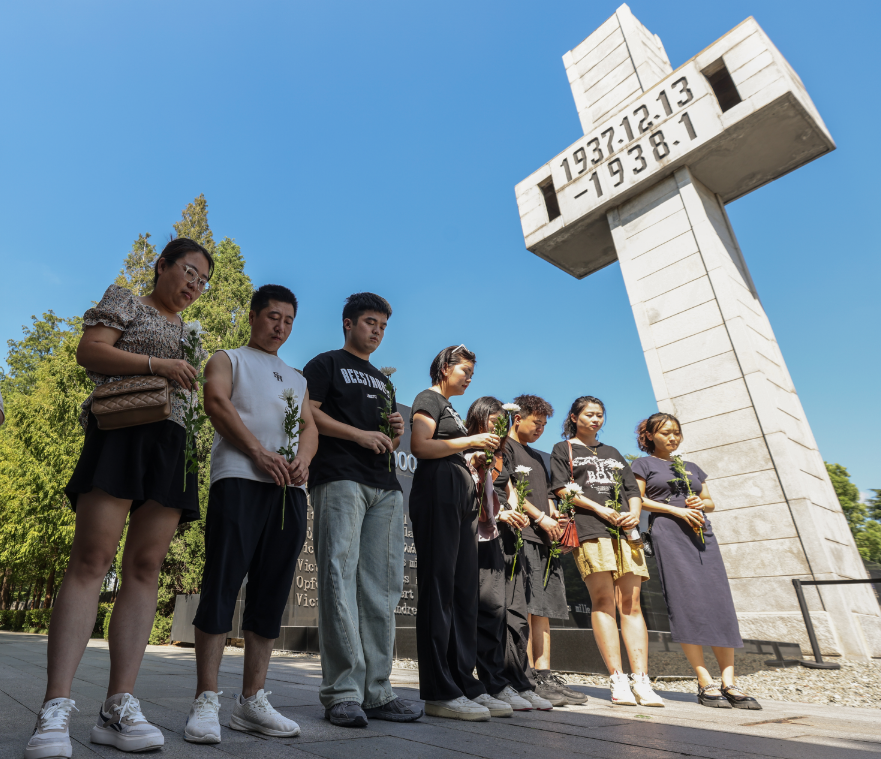
"Why did the siren just go off?" asked 3-year-old Wang Zihong to his father nearby. "Because we must remember the suffering our country endured," Mr. Wang replied. He and his family traveled from Hohhot, Inner Mongolia, specifically to visit the Memorial Hall today. He remarked, "Although my child is young, he can understand some historical photos in the exhibition, and we explain them to him. I hope he remembers this day."
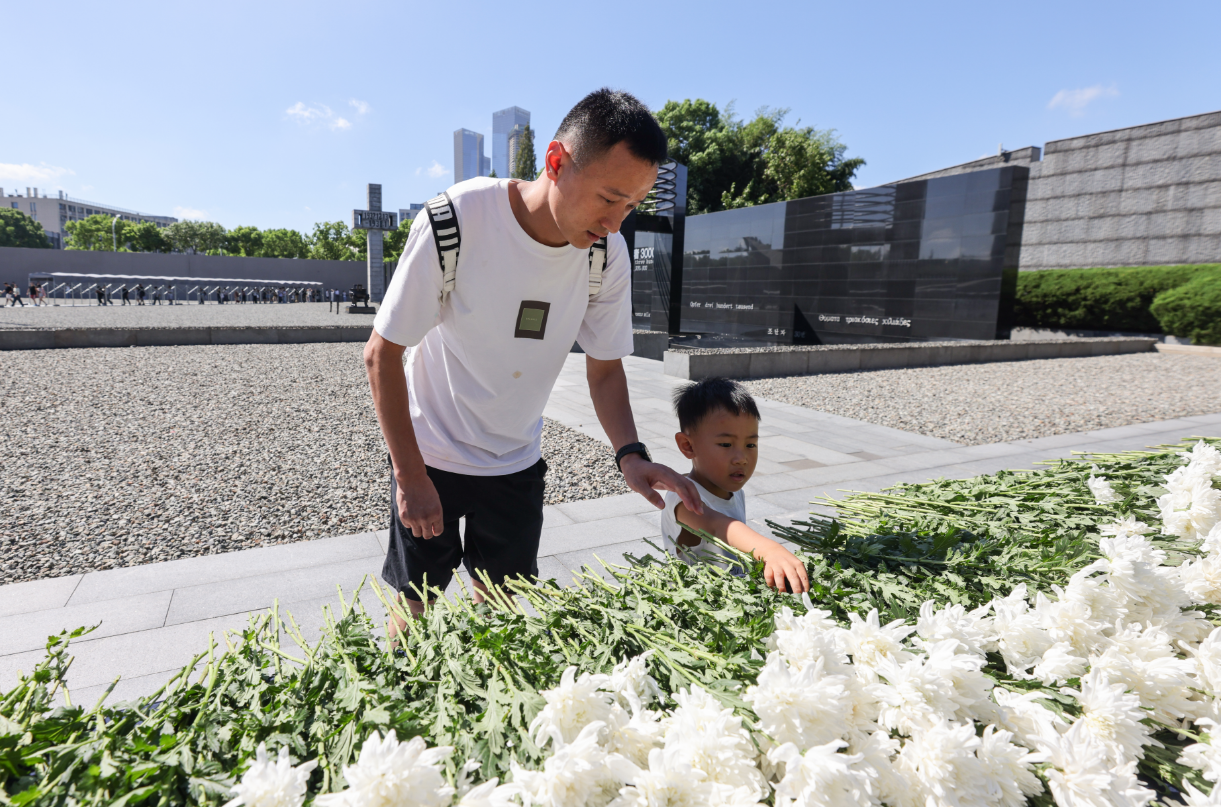
Sharing Family Stories: Spreading Historical Truth
After the ceremony, Xia Yuan, granddaughter of Nanjing Massacre survivor Xia Shuqin and one of the first batch Nanjing Massacre Historical Memory Inheritors, stood before her grandmother’s family portrait in the Nanjing Massacre History Exhibition Hall. She recounted the tragic loss her family endured in 1937, when seven out of nine family members were killed by invading Japanese soldiers.
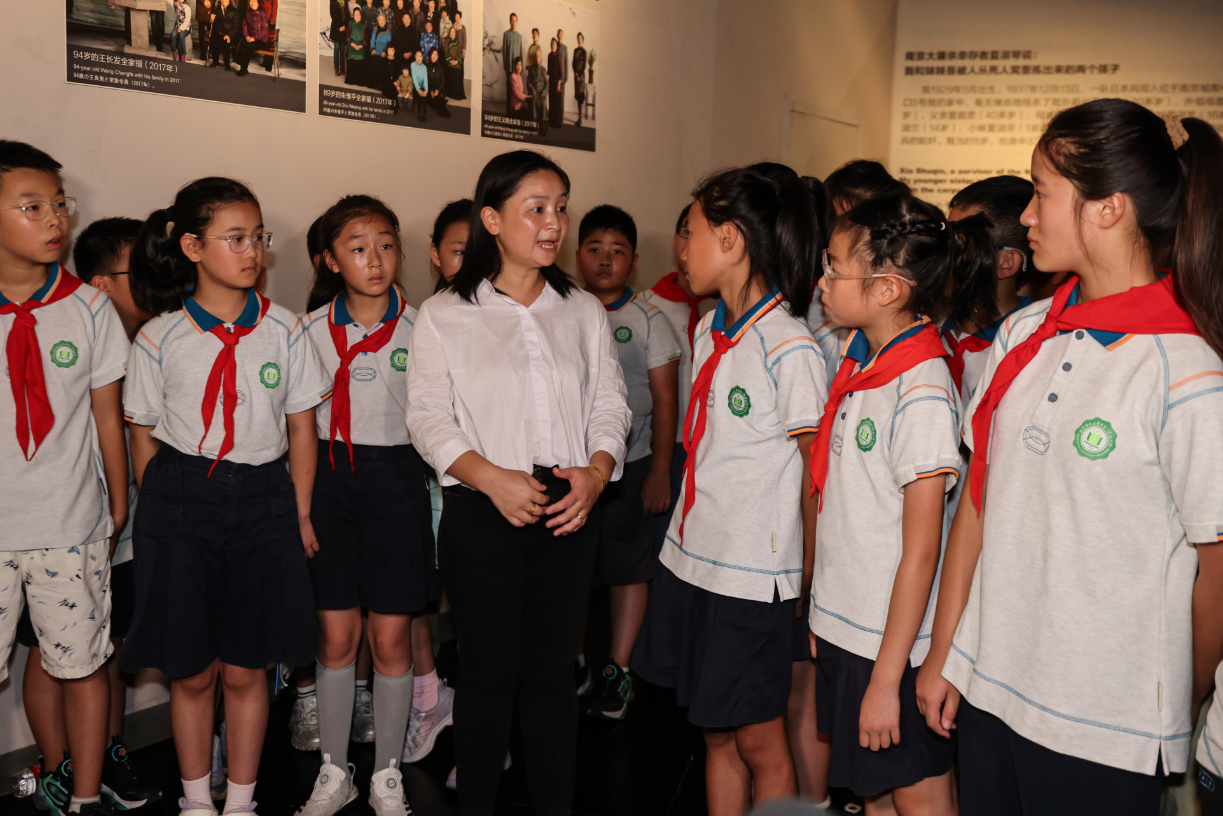
Having grown up hearing her grandmother's painful experiences during the Nanjing Massacre, Xia Yuan now carries on the legacy as a historical witness, alongside her 14-year-old son. "As a descendant of a survivor, I must pass on my ancestors’ memories so that more people understand and remember this history!" Today, the memorial also held a reading of Letters from Zhao Yiman in the visitor lounge, where students from Nanjing Xiaozhuang College's First Experimental Primary School recited family letters of revolutionaries to the audience, drawing strength from the spirit of resistance.
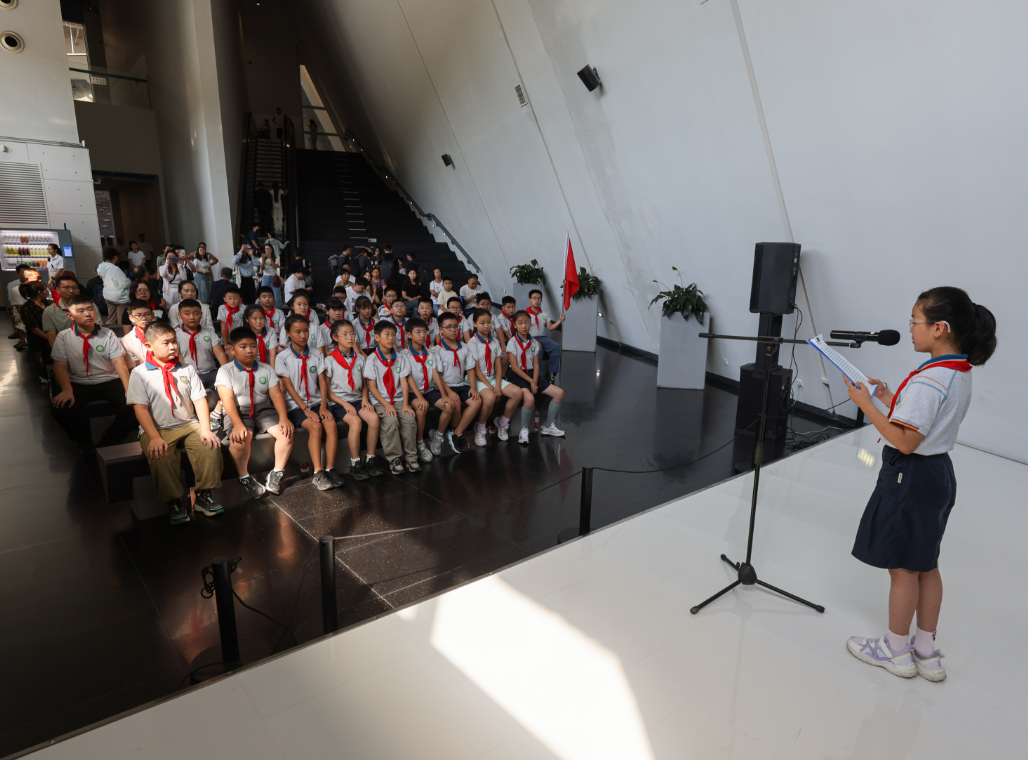
Fifth-grader Chen Ruoshui read Zhao Yiman’s family letter with deep emotion, "The revolutionary martyrs shed their blood for the lives we enjoy today. I will cherish my life and love my country even more." Many visitors intentionally chose to visit the memorial today to deepen their understanding of the hardships endured by the Chinese nation. Visitor Mr. Li shared, "In my hometown, Hebei, air- raid sirens sound on this day every year. Standing here at the memorial, I deeply feel that falling behind invites oppression. The history of the Nanjing Massacre not only tells us about past suffering but also reminds us to remain self-reliant and strong."

